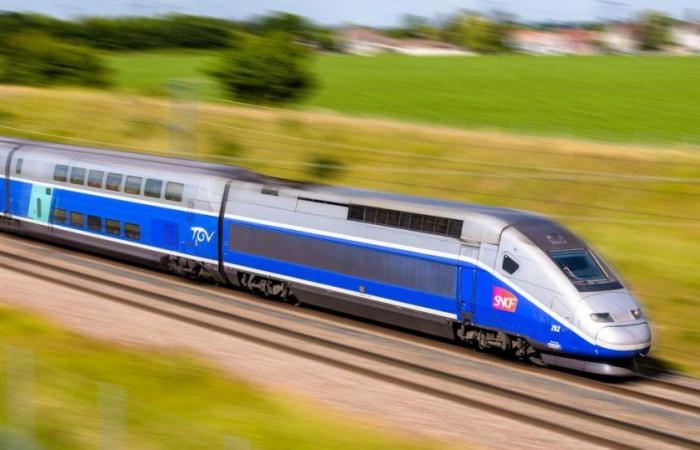
By Justin Boche
Published
1 hour ago,
Updated 17 minutes ago
”
data-script=”https://static.lefigaro.fr/widget-video/short-ttl/video/index.js”
>
Major work will take place from November 9 to 12 on the Paris-Lyon high-speed line. An unprecedented project which will mobilize more than 1000 people.
Le Figaro Lyon
From November 9 to 12, the high-speed line between Paris and Lyon will be closed for work. An operation which will impact travel between the two cities which will be diverted to the classic line, causing an increase in travel time which will increase from 2 hours to 4.5 hours.
Contacted by Le FigaroSNCF Réseau explains that the Paris Lyon LGV line will be equipped with the ERTMS (European Rail Traffic Management System) signaling system to European standard. “ERTMS technology is a signaling system with a high level of safety and performance which knows in real time the position and speed of all trains and directly gives the driver the speed he must respect, depending on the characteristics of the train (limit speed or braking capacity). It’s a bit like the cruise control in a car.”indicates the company.
The work began five years ago. In November, 58 new signal boxes and a new line control center in Lyon will be put into service. “During these four days, we will disconnect the old command center located in Paris and reconnect the switches to the brand new command center in Lyon. Such an operation, on a high-speed line already in operation, is a world first.specifies SNCF Réseau.
”
data-script=”https://static.lefigaro.fr/widget-video/short-ttl/video/index.js”
>
57,000 disconnected wires
A complex operation which will require disconnecting then reconnecting and testing 57,000 wires which control the 250 switches of the high-speed line. 1000 people will be mobilized, including the teams of“testers” who will test the switches one by one. 22 trains will run in idle mode, at 300 km/h, to test each of the installations.
Also readThe Lyon-Turin TGV once again strains relations between Paris and Rome
These new features should ultimately improve the regularity of traffic and make it possible to increase traffic by reducing the spacing between trains. From 2030, the number of trains in circulation should increase from 13 (which is currently the case during rush hour) to 16 per hour. This technology should also facilitate the passage of trains from one country to another. A strong argument at a time when French lines are opening up to competition, the Lyon-Paris route already being operated by Trenitalia in addition to SNCF.
Commissioned in 1981, the Paris-Lyon high-speed line handles an average of 240 trains per day, or a third of the high-speed traffic on the French network.
”
data-script=”https://static.lefigaro.fr/widget-video/short-ttl/video/index.js”
>





